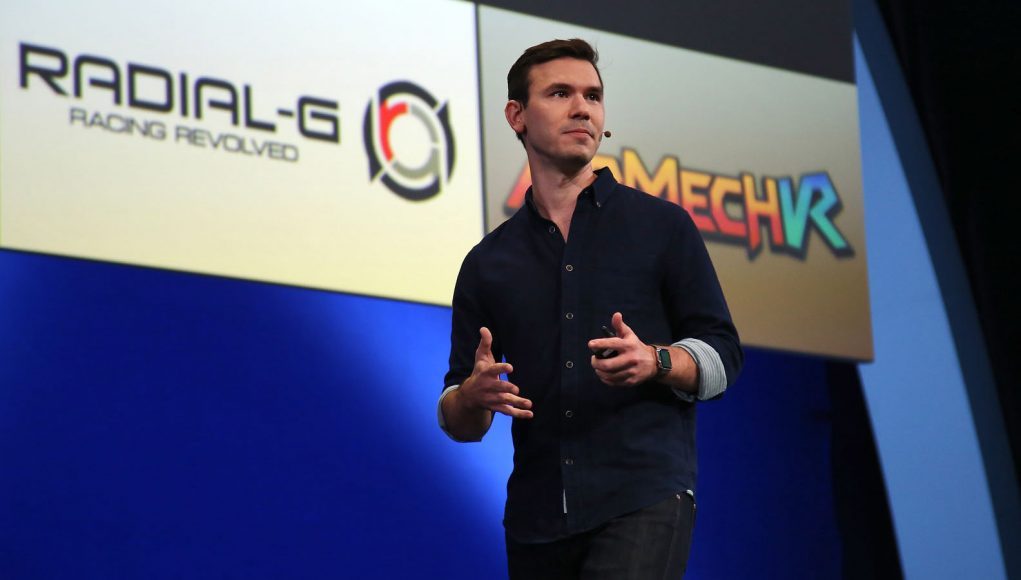Nate Mitchell, Facebook’s Head of VR Product, and the last of Oculus’ co-founders, has announced that he’s leaving the company.
Mitchell was among five core people at the inception of Oculus in 2012, which also included Palmer Luckey, Brendan Iribe, Jack McCauley and Michael Antonov, all of which have now departed the company following the 2014 Facebook acquisition.
Mitchell announced his departure on the Oculus Subreddit on Tuesday.
Hey everyone — I have some bittersweet news to share with this community. After 7 incredible years, I’ve decided to move on from Oculus / Facebook.
When we posted the Kickstarter in 2012, VR was mostly the stuff of science fiction. We didn’t know if people would take us seriously. We weren’t even sure we’d hit our original $250k target. But this community from around the world came together and helped make VR a reality. Fast forward just a few years later, and VR is changing people’s lives every day. This is because of you.
Virtual reality is still on the bleeding edge of technology, and this community continues to pioneer the way forward. What’s ahead is always unknown, and that’s what makes it exciting. Stay bold and keep chasing the future.
What’s next for me: I’m taking time to travel, be with family, and recharge. Of course, I’ll still be part of this community, but I’ll have a much smaller role to play.
I expect the incredible team at Facebook to continue to surprise and delight us on this mission to build the next computing platform. I can’t wait to see what comes next.
To everyone here: Thank you for your passion and creativity. Thank you for believing in the impossible. Thank you for inspiring us everyday.
Thanks for 7 amazing years.
Nate
According to Mitchell, he started at Oculus as the company’s VP of Product, became Head of Rift in 2016, and then Head of VR Product at Facebook in 2018.
His departure follows Jack McCauley who left in 2015; Palmer Luckey who left in 2017, reportedly pushed out for his political views; Brendan Iribe who left in 2018, reportedly due to disagreement over the future direction of the Oculus Rift; and Michael Antonov who left this May.
Mitchell’s departure marks an end of an era, and effectively a total transition of the original Oculus leadership to those chosen by Facebook.
Despite the string of departures since the acquisition, Facebook seems pleased with the sales of its latest mobile VR headset, Quest, and is signalling continued belief in its vision of developing AR and VR technology.
“The reason augmented and virtual reality will deliver a qualitatively better experience than traditional computing platforms is that they deliver the feeling of presence—that you’re actually there with another person or in another place,” Facebook CEO Mark Zuckerberg recently told shareholders. “The feeling of presence is so important to social interactions and how we’re wired to interact as people. So even if it has taken longer than we expected to deliver this at scale, I continue to believe that this will be one of the most important contributions we make to the way we all use technology over the long-term.”







